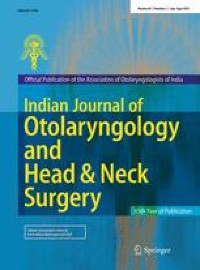Abstract
Awareness regarding consanguineous marriage and other risk factors of infantile hearing loss is essential for prevention, early detection and timely intervention which can save deaf children from lifelong consequences of hearing disability. A pre-post study was done among the general population of Puducherry, India to evaluate the effect of health education on knowledge and behaviour towards consanguineous marriage and infantile hearing loss. Individual direct interviews were done using a questionnaire to assess their awareness about consanguineous marriage and other risk factors of infantile hearing loss, its early detection and intervention. The assessment was repeated after a health education given for the same by direct interaction and pamphlets. The study showed that 65% participants were unaware of consanguinity being a risk factor for congenital hearing loss. More than half of them were unaware of other risk factors, neonatal hearing screening and treatmen t. Only 35.3% were aware that early identification and intervention enables a deaf child to learn optimum speech and language. Prior to health education, 33.7% were in support of consanguineous marriage whereas, after the health education, only 6.7% supported it showing significant improvement in their attitude towards consanguineous marriage. Post health education, there was overwhelming 100% improvement in their knowledge regarding infantile hearing loss. The study shows the poor awareness among the population of Puducherry regarding consanguineous marriage and infantile hearing loss, thus requiring a widespread sensitization about infantile hearing loss which can prevent lifelong consequences of the hearing disability.



Δεν υπάρχουν σχόλια:
Δημοσίευση σχολίου
Σημείωση: Μόνο ένα μέλος αυτού του ιστολογίου μπορεί να αναρτήσει σχόλιο.